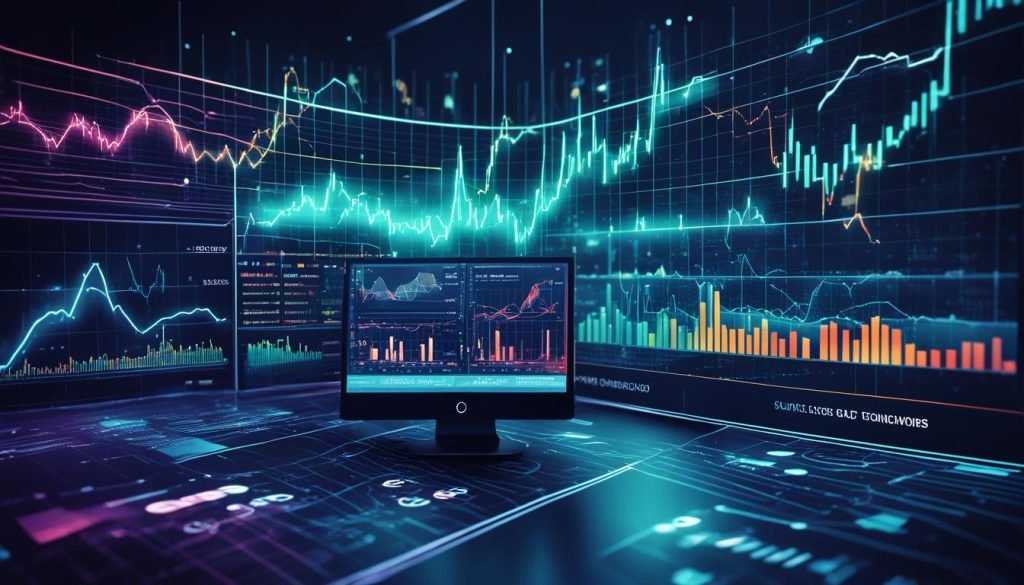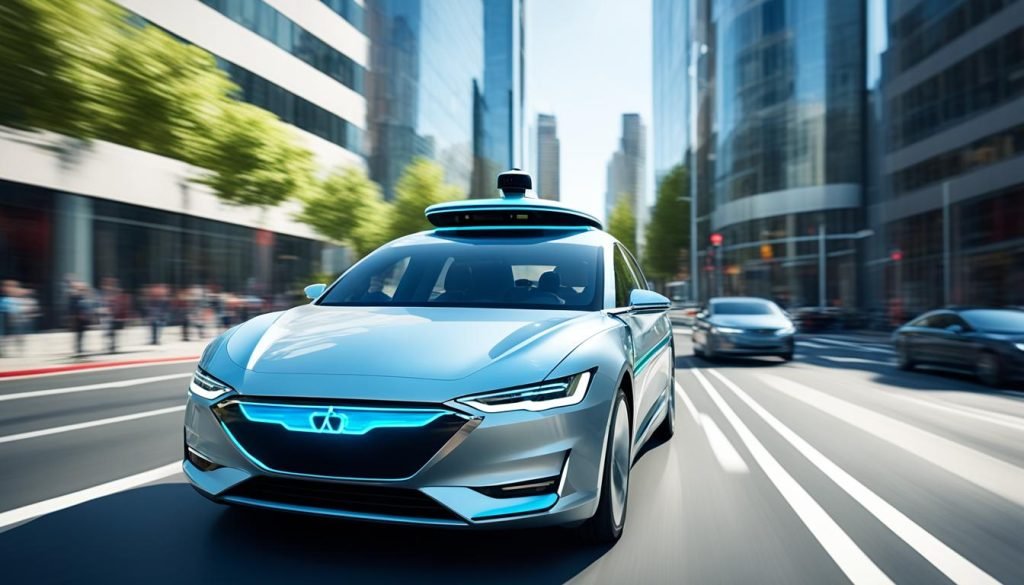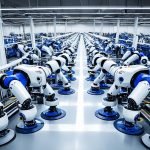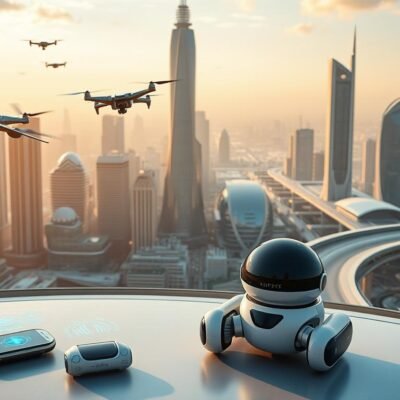In recent years, AI has changed many sectors, bringing big changes we can’t ignore. It has made things more efficient and improved how we talk to customers. This change is not just a trend; it’s a big shift in how businesses work.
This shift is making new opportunities in the market. It’s changing how we make decisions and opening up new ways to do things.
Studies show that AI could greatly increase the world’s GDP. Companies in healthcare, finance, transportation, and manufacturing are using these new technologies. This makes AI more important in our daily lives.
This article will look at how AI affects different industries. It will also show the big steps forward we’re making.
Key Takeaways
- AI advancements are significantly reshaping industries across the globe.
- Machine learning breakthroughs enhance operational efficiencies.
- Artificial intelligence developments are improving decision-making processes.
- AI transformation creates new market opportunities.
- Technologies like deep learning and neural networks are at the forefront of this change.
- AI’s integration into healthcare, finance, and transportation marks a pivotal shift in everyday practices.
Understanding AI and Its Capabilities
Artificial intelligence (AI) covers a wide range of technologies. These technologies let machines do tasks that humans usually do. The definition of artificial intelligence has grown a lot, leading to big changes in many areas.
Definition and Scope of Artificial Intelligence
AI is about systems that can do tasks that need thinking and solving problems. Recently, with big steps in machine learning, AI has become a big part of our lives. It makes things more efficient and helps us work better.
Key Components: Machine Learning and Deep Learning
Machine learning is a big part of AI. It gets better on its own as it goes along. This has led to big changes in how we make predictions and make decisions with data.
Deep learning is built on this and uses neural networks to handle lots of data. These networks help with complex tasks, showing big steps forward in AI.
Importance of Neural Networks in AI
Neural networks are key to many AI uses. They work like the human brain, connecting different parts together. This helps with things like seeing images and understanding language.
New advances in neural networks are starting a new chapter in AI. Now, systems can learn to do hard tasks on their own.
Impact of AI Advancements on Healthcare
AI is changing healthcare in big ways. It’s making care better for patients and making healthcare systems work better. We see big improvements in things like making diagnoses, making things run smoother, and finding new medicines faster.
AI in Diagnostics and Patient Care
AI helps doctors by quickly analyzing lots of medical data. It looks at medical images to help doctors make faster, more accurate diagnoses. This means patients get better care faster.
Streamlining Administrative Processes
AI also makes things run smoother behind the scenes. It helps with things like setting up appointments and handling bills. This means doctors and nurses can spend more time on helping patients and less on paperwork.
Drug Discovery and Development Innovations
AI is speeding up how we find new medicines. It looks through huge amounts of data to find possible new medicines. This means we can get new treatments out faster and make them more effective.
AI Advancements in Finance
The finance world is changing fast thanks to AI. AI has made a big impact, especially in automated trading systems. These systems can handle huge amounts of data quickly, making trading faster and more precise.
Machine Learning in Automated Trading Systems
Automated trading uses smart algorithms to make trades automatically. Machine learning makes these systems better over time. They learn from market data to predict trends and find good trading chances. This makes them handle risks better than old methods.
Fraud Detection and Risk Assessment Enhancements
AI has changed how banks fight fraud. It looks at transaction patterns to spot odd activities early. This helps stop fraud before it happens. AI uses complex technology to check many things about each transaction, giving a deeper look than simple checks.

Transforming Transportation with AI
AI is changing the way we move around. It brings us self-driving cars and smart traffic systems. These changes make our roads safer and more efficient. They help everyone, from drivers to city planners.
Autonomous Vehicles and Safety Improvements
AI has made self-driving cars a reality. These cars use complex algorithms to keep us safe. They make quick decisions based on real-time data from sensors.
This means safer rides and fewer accidents. The cars get better over time, learning from what happens on the road. This makes driving cheaper and safer for everyone.
Data Analytics for Traffic Management
AI is key to managing city traffic better. It uses lots of data to make traffic lights and routes smarter. This helps cities deal with traffic jams and make driving smoother.
By using data wisely, cities can move more people safely and efficiently. This also helps reduce pollution from cars.

| AI Innovation | Description | Impact |
|---|---|---|
| Autonomous Vehicles | Vehicles that operate without human intervention using AI algorithms. | Reduced accidents, enhanced safety for passengers. |
| Traffic Management Analytics | Data-driven systems that optimize traffic flow and reduce congestion. | Improved travel times, lower emissions from vehicles. |
AI Innovations in Manufacturing
The manufacturing world is changing fast, thanks to big steps in AI. Predictive maintenance technology is a key example. It uses machine learning to keep an eye on how well equipment is working.
By looking at lots of data, companies can spot when machines might break down. This means they can fix things before they stop working, saving a lot of money and keeping production going without pause.
Predictive Maintenance Using Machine Learning
Old ways of doing maintenance are being replaced by new ones that use AI. Now, factories can fix problems before they happen, moving away from just waiting for things to break. This smart approach helps companies save money and make their equipment last longer.
Enhancing Supply Chain Efficiency with AI
AI is also key to making supply chains work better. It helps with things like managing inventory and logistics, letting companies quickly adjust to new market needs. This means products get to customers on time and less gets wasted.
As robotics gets better, these tools will be even more important in managing complex supply chains. They’re becoming essential for modern manufacturing.



